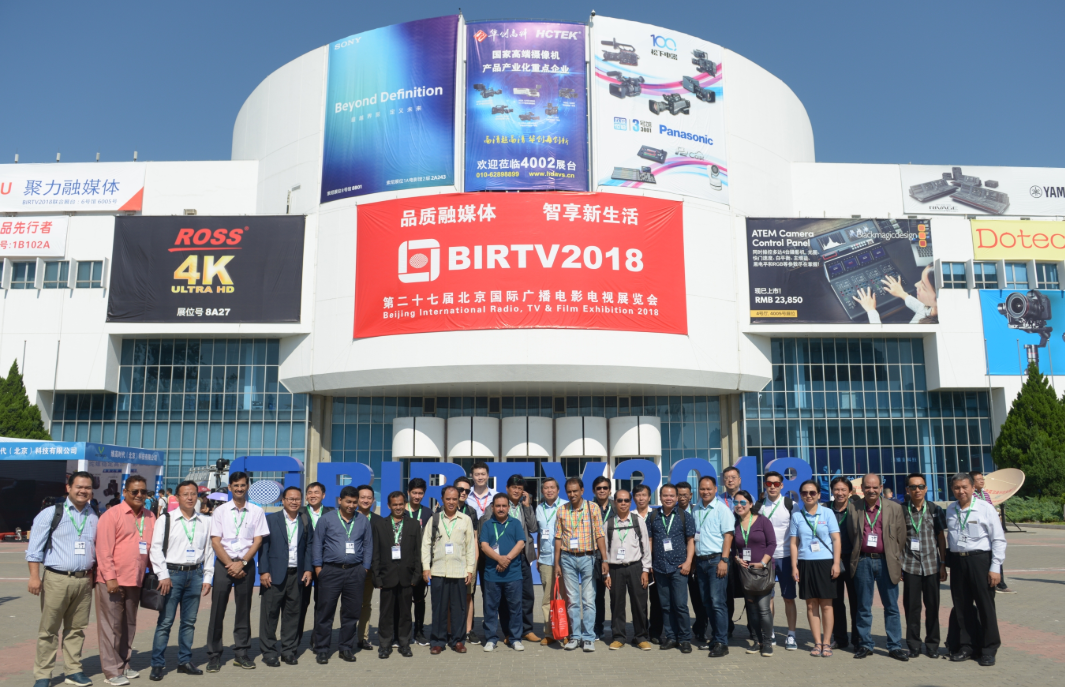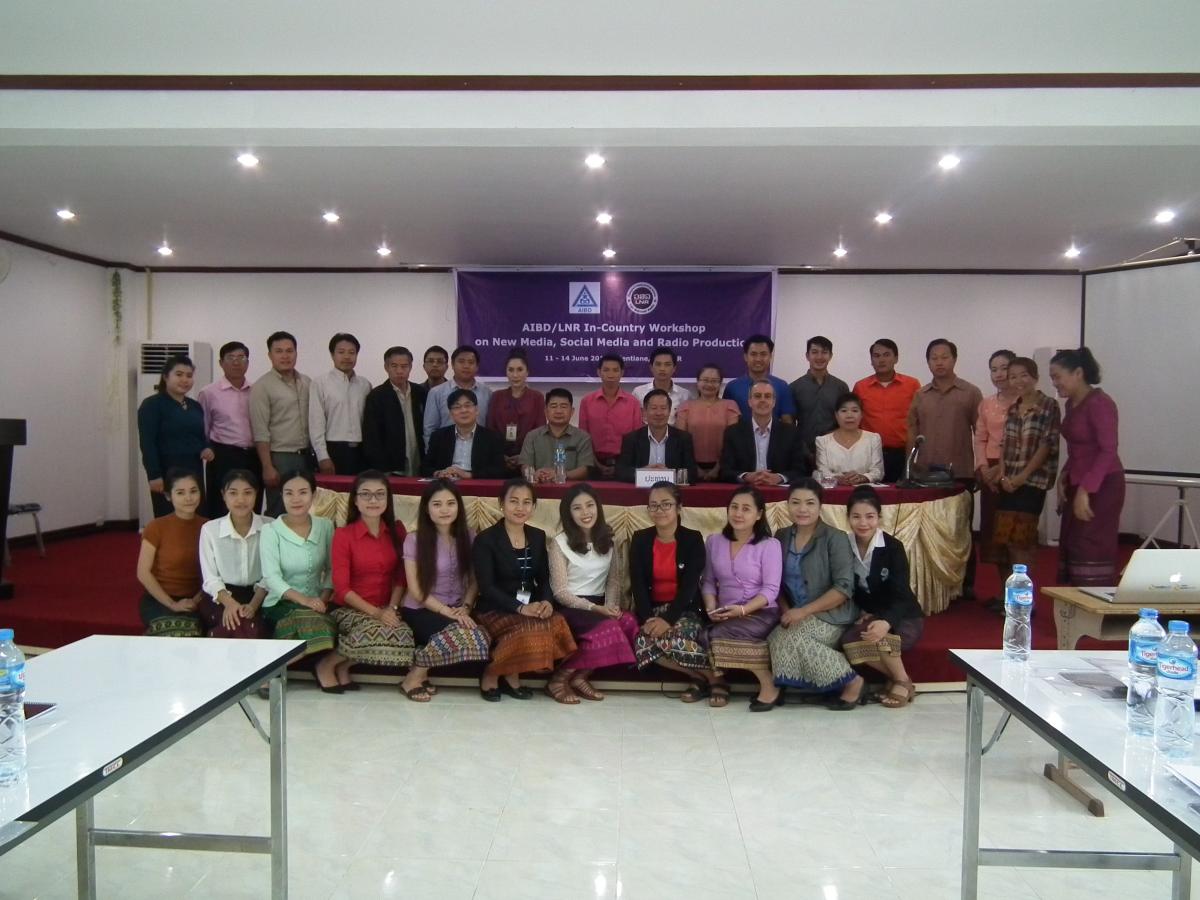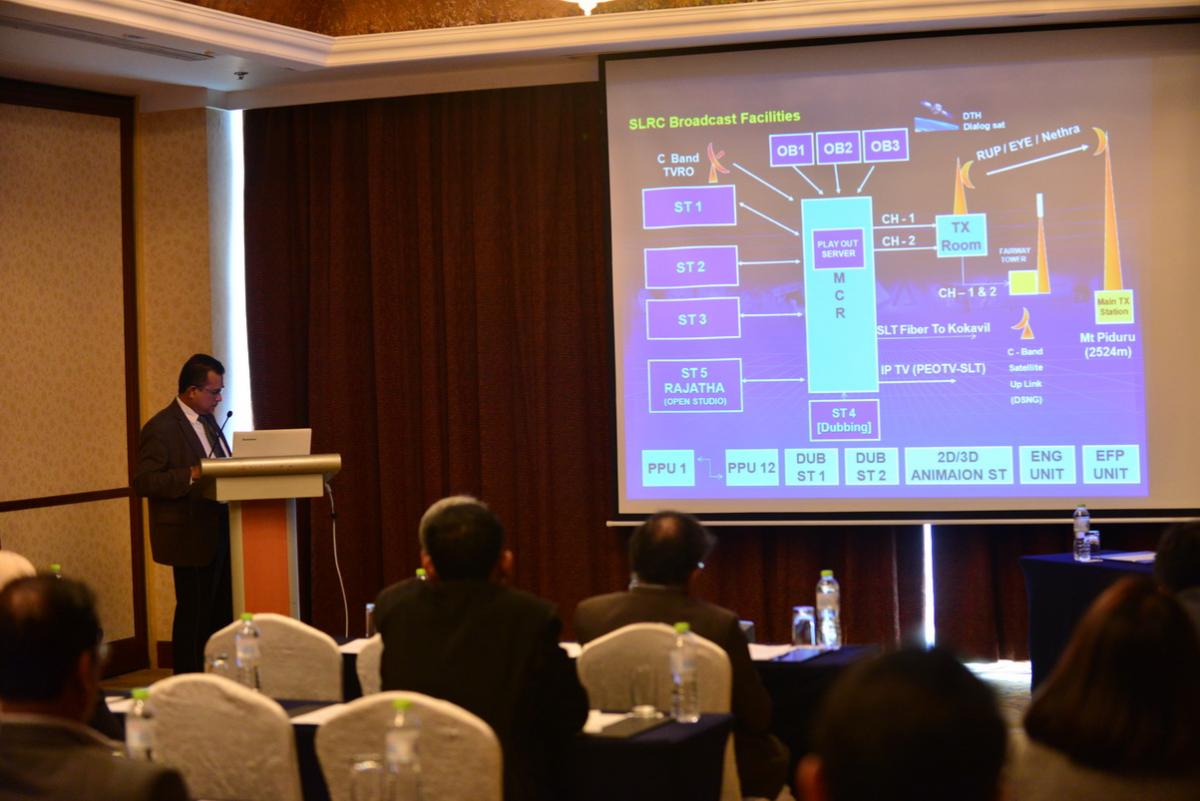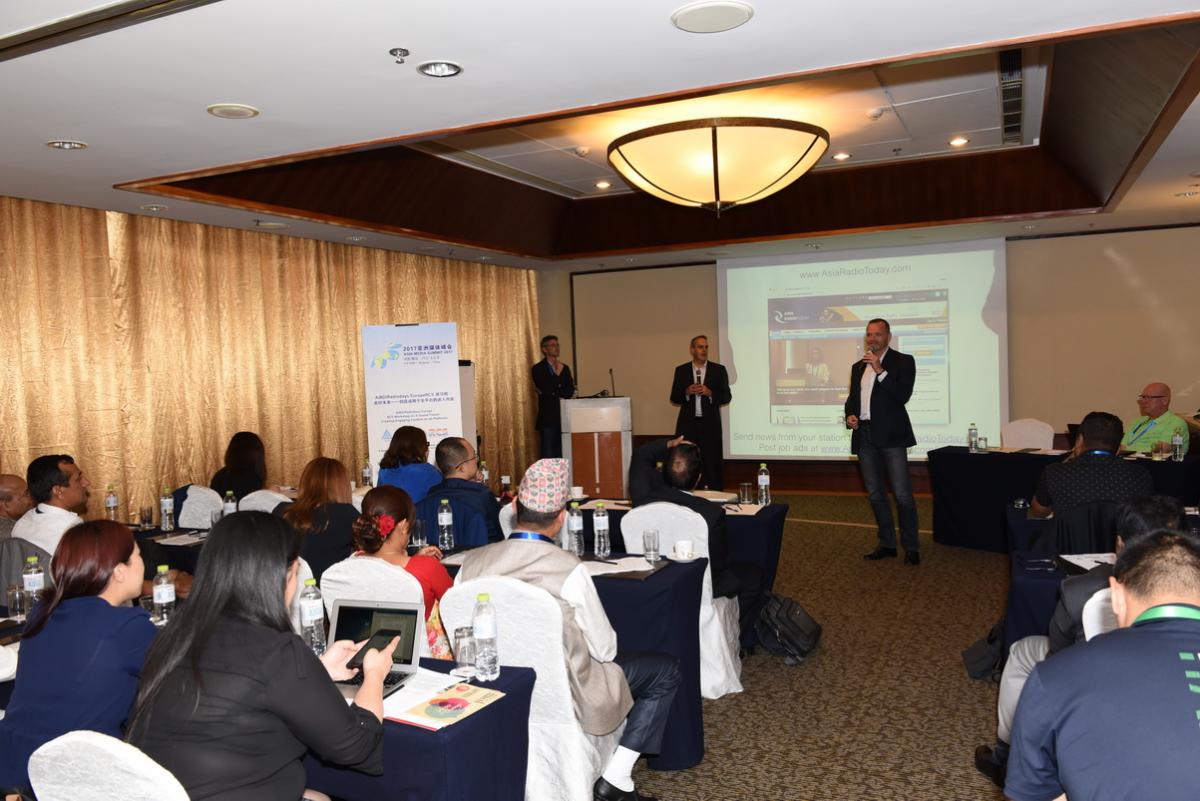Asia-Pacific Institute for Broadcasting Development (AIBD) in partnership with and the United Nations International Strategy for Disaster Reduction (UNISDR) and the Asian Disaster Preparedness Center (ADPC) held a media training workshop at the headquarters of Vietnam Television (VTV) in Hanoi, Vietnam, from 25 to 26 April 2017.

Twenty-seven participants from Vietnam Television (VTV) and Voice of Vietnam (VOV) attended the ‘In-Country Workshop on Climate Change and Disaster Risk Management for Broadcasters’.

The two-day workshop stressed the importance of understanding and building awareness of climate change and disaster risk management concepts. The workshop aimed to create communities that can keep themselves safe from natural disaster and adapt to the effects of climate change.
The workshop gave participants an opportunity to increase their understanding of the effects of climate change and the hazards caused because of it. Building on this understanding, participants analyzed their own coverage to discover how to better prepare communities for relevant hazards, such as drought, that are likely to affect them.

Participants also had the opportunity to create outlines for story ideas they could work on in the future. These ideas included drought awareness raising, disease prevention, thunderstorm warnings for farmers, coastline erosion and hazards along the Mekong delta, water surge due to irregular typhoons, and adaption and mitigation methods during the dry season to protect livelihoods in rural areas. These ideas are hoped to become broadcasts in the coming months.



Mr Israel Jegillos, Program Coordinator, ADPC, and Mr Don Tartaglione, Senior Communications Coordinator, ADPC, facilitated the workshop and simultaneous translation was provided by Ms Ha Minh Nguyen, Coordinator/Journalist of VTV.

AIBD/VTV/UNISDR/ADPC In-Country Workshop on Climate Change and Disaster Risk Management for Broadcasters
Asia-Pacific Institute for Broadcasting Development (AIBD) in partnership with and
AIBD/RTB Workshop on Mobile Journalism
The in-country workshop on Mobile Journalism (MoJo) organised by AIBD
ABU/ASBU/AIBD/WORLDDAB/DAB+ REGIONAL WORKSHOP ON DIGITAL RADIO
Asia-Pacific Institute for Broadcasting Development (AIBD) in collaboration with Asia-
AIBD/BIRTV Media Cooperation Exchange Project
Asia Pacific Institute for Broadcasting Development (AIBD), and Beijing International
AIBD / STARTIMES / BECIL Pre-Summit Regional Workshop on Digital Terrestrial Television Broadcasting – Transition Strategy
Digital broadcasting is a broadcast technology based on the transmission
Pre-Summit Workshop Clicks
Clicks from Pre-Summit workshops of Asia Media Summit 2018 get married
ASEAN-China-UNDP Symposium in Chiang Rai
The ASEAN-China-UNDP Symposium on Financing the Implementation of the Sustainable Development Goals in ASEAN was held during 21 – 22 August 2017 in Chiang Rai, Thailand.
The ASEAN-China-UNDP Symposium on Financing the Implementation of the Sustainable Development Goals (SDGs) in ASEAN brought together senior representatives from governmental agencies of ASEAN Member States and China, ASEAN sectoral bodies, prominent think tanks and representatives of civil society, the ASEAN Secretariat, UNDP, the private sector and the media.
AIBD/LNR In-Country Workshop on New-media, Social media and Radio Production
AIBD, in collaboration with Lao National Radio, organised the 4-day workshop on new media, social media and radio production for staff from different media organisations in Laos capital Vientiane.
Dealing with the Challenges of Digital Migration
The ITU Regional Office for Asia and the Pacific says costs, enormity of task, lack of government support and cooperation among stakeholders, and ever evolving technologies remain as some of the challenges in the migration from analogue to digital in the region.
“Not only does the setup of infrastructure for digital but also carrying out a simulcast service for a given period involve a lot of money and resources. On top of these the need to subsidise set- top-boxes to masses is an additional burden,” said Mr Wisit Atipayakoon, Programme Officer of the ITU Regional Office for Asia and the Pacific, Bangkok before participants at the AIBD/ITU/ABU regional workshop on “Digital Terrestrial Broadcasting TV and Radio Policy and Transition,” on 5 June 2017 in Qingdao, China.Radio Stations Urged to Understand and Love their Listeners
A winning strategy for radio stations must consider the listener, brand. Content and promotion.
They must learn to understand and love their listeners who, after all, decide the shape of their brand. “ Everything a radio station does in the air must be entertaining, useful, interesting to their listeners, and connecting to their heart, head and hand,” says Francis Currie, international radio consultant, trainer and coach, UK. Mr Currie spoke at the AIBD/Radiodays Europe/RCS Presummit workshop on “A Sound Future-Creating Engaging Content on all Platforms, held on 5 June 2017 in Qingdao, China. Some 31 participants from 16 countries in Asia-Pacific and Africa attended the workshop.




